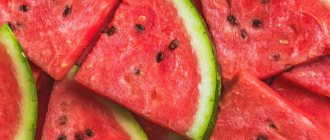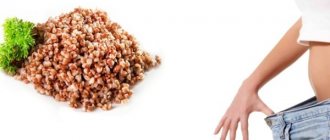Unloading while waiting for a child
You can often hear from pregnant women that the expectant mother should eat whatever she wants, without limiting herself. Excessive consumption of a variety of foods leads to gaining extra pounds. Doctors say that a balanced diet helps maintain the health and proper development of the baby and facilitates labor.
Excessive consumption and indiscriminateness in food worsens the well-being of the expectant mother. If the nutritional situation is out of control, fasting days on cottage cheese or other foods during pregnancy will help.
Unloading implies a reduction in the calorie content of dishes included in the daily diet and dietary restrictions. Rationally organized fasting days have a positive effect on the health of the baby and mother. It is important to consult your doctor before restricting your diet.
Unloading is carried out no more than one day. Severe restrictions on food consumption that last more than 2 days are called a diet. It can greatly harm the expectant mother and baby, leading to nutritional deficiencies.
How to spend fasting days during pregnancy
For expectant mothers, there are certain restrictions on fasting days. You should never go hungry during this time. All food should be divided into 5-6 equal-sized portions. There should be equal time intervals between meals.
If we are talking about foods with a fairly dense consistency, you need to chew them slowly so that all the nutrients are better absorbed. Out of habit, you will experience a strong feeling of hunger. Then, in addition to the main diet, you can drink a glass of low-fat yogurt, but no more.
It is important to take enough water, but not too much, otherwise the body will react with swelling. In the first trimester, it is recommended to drink up to 2.5 liters of fluid per day. But in the second the amount is reduced to 1.5 liters. And from the 30th week you can drink no more than 1.2 liters per day.
Who are not recommended for fasting days?
Independent experiments by pregnant women with the introduction of fasting days and dietary restrictions are prohibited. Such activities have a number of contraindications:
- presence of chronic diseases – diabetes mellitus and others;
- weight loss in the expectant mother;
- certain pathologies of the gastrointestinal tract and cardiovascular system.
Women with:
- food allergies;
- bronchial asthma;
- diseases of the endocrine system.
Indications for unloading the body
The basic principle of nutrition that an expectant mother should adhere to is moderation. While expecting a baby, pregnant women should not limit their diet unnecessarily. Doctors can recommend fasting days to pregnant women when:
- gestosis;
- rapid weight gain;
- disorders of the gastrointestinal tract, constipation;
- exacerbation of chronic diseases, especially with pathologies of the kidneys and liver;
- swelling;
- shortness of breath;
- diseases of the cardiovascular system.
Harm and contraindications during pregnancy
Buckwheat mono-diet
Weight gain during pregnancy is a natural process, and rather the opposite should be scary: its absence or loss. However, doctors are most critical of those women who gain pounds outside of their schedule. And they start offering to go on a diet. But losing weight in this position is simply prohibited!
Of course, it’s better to eat right from the very beginning, then your weight will be normal. If it goes beyond what is permitted, you should simply switch to a leaner diet. This does not mean complete fasting or switching to a mono-diet. Both options are simply contraindicated during pregnancy. A woman’s diet at the moment should be complete and varied.
Buckwheat mono-diet is harmful in the following ways:
- Due to insufficient sugar intake, a glycemic crisis (hypoglycemia) can occur. It is expressed in the form of dizziness, slow mental activity, increased fatigue;
- It gets boring very quickly and soon there comes a moment of insatiation. Thus, the effect of “secondary” hunger occurs, that is, an increase in portions and overeating;
- insufficient amounts of essential nutrients.
In addition, one of the contraindications to the use of this diet is pregnancy.
Also contraindications to its use are:
- diabetes;
- acute diseases of the gastrointestinal tract (gastritis, peptic ulcers, etc.);
- cardiovascular diseases;
- lactation period;
- childhood and adolescence.
Also, in cases where a quick reaction, intensive brain work, and active physical activity are needed, such nutrition should be excluded, since in such moments nutritious nutrition is also necessary.
The benefits and harms of a fasting day for a pregnant woman
Benefits that the expectant mother receives:
- the body is cleansed of toxins and waste;
- excess fluid is removed;
- additional microelements and vitamins come from foods;
- weight loss;
- blood pressure is normalized;
- swelling goes away;
- the walls of blood vessels and the heart muscle are strengthened;
- kidney and liver function is restored;
- the digestive system is unloaded and rests;
- metabolic processes improve;
- nails and hair become stronger, skin becomes smoother and healthier.
Fasting days do not bring harm if you follow the recommendations of a specialist and listen to your own body.
Types of fasting days
Nutritionists offer a variety of ways to unload the body of a pregnant woman. It is necessary to choose the appropriate option individually with a doctor, who will take into account the health status of the expectant mother and the purpose of the event.
Each type of unloading has its own healing properties. If you have kidney disease, liver disease, hypertension or edema, apple or watermelon days are recommended. If a woman has obesity or atherosclerosis, you should give preference to low-fat kefir. Fasting days on buckwheat during pregnancy are recommended for women who suffer from constipation.
Expectant mothers with diseases of the digestive system are contraindicated on days with dietary restrictions, where they can only consume fermented milk products or meat, which brings minimal benefit to the body.
The best options for fasting days for women who are in an interesting position are buckwheat, apple and kefir. A similar diet during pregnancy maintains energy throughout the day and helps satisfy hunger. Apples can only be consumed by those who do not have gastritis.
Many useful step-by-step recipes with buckwheat can be found here!
For swelling
Minor swelling while waiting for a baby is a natural phenomenon. During labor, most of the fluid accumulated in the body is eliminated. The remaining volume will be released in the first week after the baby is born.
To reduce swelling, you should lead an active lifestyle and adhere to the principles of proper nutrition:
- Reduce the amount of salt you consume as much as possible.
- Establish a drinking regime.
- Avoid eating smoked and fatty foods.
- Give preference to boiling and steaming food.
- Include vegetables, herbs and fruits in your daily menu.
- Have snacks between main meals.
- In the absence of contraindications, unload the body.
"Hungry" days
This weight loss option is quite effective. “Hungry” days allow the digestive system to rest, and the pregnant woman’s body has time to cleanse itself.
| Type of fasting day | Approximate daily diet |
| Vegetable | On this day it is better to choose zucchini, zucchini, cucumber, cabbage, and bell pepper. Vegetables can be consumed raw or boiled. No more than 1.5 kg is allowed per day. |
| Kefir | You are allowed to drink no more than 1.5 liters of low-fat kefir per day. You can't eat. |
| Watermelon | You can't eat anything except watermelon all day. Don't forget about your drinking regime. The daily limit is water of at least 1.5 liters and no more than 1.5 kg of watermelon. |
| Apple | The preferred option for unloading the body in the summer. Apples are eaten baked or fresh. When preparing, you should avoid using sugar, but you can pour honey over the fruit and sprinkle with cinnamon. The norm is up to 1.5 kg. |
| On juice | Consume no more than 1 liter of freshly squeezed juice. The drink is prepared immediately before consumption. Juice can be made from berries, fruits or vegetables. |
"Fed" days
This is an excellent option for expectant mothers who cannot stand the feeling of hunger. Such fasting days are perfectly combined with the dietary nutrition of nursing women.
| Type of fasting day | Approximate daily diet |
| Curd | It is permissible to consume 600-800 grams of berries and 400 grams of low-fat cottage cheese per day. You need to give up sugar. When choosing berries, give preference to seasonal ones. A little milk or low-fat kefir can be added to the diet if cottage cheese without adding sour cream seems dry. |
| Buckwheat | Buckwheat is not cooked, because in this case it loses its beneficial properties. A glass of buckwheat is filled with 1.5 glasses of low-fat kefir and placed in a dark and cold place for 12 hours (the refrigerator cannot be used). Salting the dish is prohibited. |
| Fruit | You can choose any fruit, but consume no more than 1 kilogram per day. They are used to make salads or eat in their pure form. |
| Potato | You can consume no more than 2 kilograms of boiled or baked potatoes per day. It is not prohibited to add up to 2 glasses of low-fat kefir to the diet. |
| Rice | Brown rice in the amount of 150 grams is boiled without salt until tender. You can add carrots, sweet bell peppers or an apple to the dish. |
Here is an interesting recipe for cottage cheese casserole with buckwheat flour.
Who might benefit from unloading on cottage cheese?
This unloading is primarily suitable for people who love fermented milk products.
In this case, giving up other types of food will not put stress on the body, which will help to achieve maximum results. A short-term refusal of high-calorie foods in favor of cottage cheese is recommended for athletes. The product is an important source of protein necessary for the growth of muscle mass and at the same time helps to reduce the thickness of the fat layer.
In addition, fasting is suitable for people who have a hard time feeling hungry. Even a small portion will be enough to fill you up. It is recommended for older people who are prone to osteoporosis to spend cleansing days on this product.
Features of the event
You can achieve the maximum benefit of fasting days for the body of a pregnant woman and baby by adhering to certain rules:
- Start the practice of restricting nutrition from the 28th week of the baby's waiting period.
- Obtain the doctor's permission and his recommendations.
- Unload the body no more than once every 7-10 days.
- Regularly arrange days with dietary restrictions during rapid weight gain.
- On a fasting day, drink at least 2 liters of clean water.
- Have meals every 3.5-4 hours.
- Drink a glass of natural yogurt or low-fat kefir if you cannot bear hunger.
- Avoid consuming sugar and salt.
- Practice various options for fasting days - buckwheat, cottage cheese, apple.
- Avoid carrying out such activities if you have toxicosis.
- Take into account and adhere to permissible limits. When unloading the body with fruits and vegetables, the weight of food consumed per day should not exceed 2 kilograms, and with meat - up to 700 grams.
- You cannot combine fasting days with intestinal cleansing.
- Avoid physical activity and excessive fatigue.
- Gradually exit the fasting day.
Certain tricks will help you to have a positive attitude toward unloading your body.
- Finding something fun to do for the day.
- Using small dishes. Deceiving the brain will help you overcome the feeling of hunger.
- Companion support. Spending a fasting day together can overcome temptation.
Can this diet be used during pregnancy?
You cannot use a mono-diet during pregnancy at all. However, if you consume other foods along with buckwheat, it will be both healthier and more rational.
Buckwheat has many beneficial qualities. One of these substances is rutin. It strengthens the walls of blood vessels and also normalizes blood pressure. Nicotinic acid, which is also included in its composition, together with organic ones, evens out the acid-base balance of the body. Buckwheat contains iron, which helps with anemia and increases hemoglobin in the blood. This is very necessary, since such phenomena are not uncommon in pregnant women, and they are dangerous because they cause fetal hypoxia, and bleeding may also occur during childbirth.
Is it possible to use a mono-diet during pregnancy?
Folic acid helps in the proper development of the fetus and the absorption of iron. In addition, it contains amino acids and microelements (zinc, magnesium, etc.), which are necessary and useful substances.
Read: Prevention and treatment of acne during pregnancy
Buckwheat should be in a pregnant woman's diet. But besides this, you need to include several more components. White chicken meat, cottage cheese and apples are usually recommended. By adhering to such a diet, excess water will leave the body, that is, this is a kind of fight against edema. But it must be remembered that the amount of salt should not be excessive. And also do not forget about the drinking regime.
Although pregnant women are advised not to get carried away with it, they still need to drink at least 1–1.5 liters per day. Moreover, simple drinking water should prevail. You should also continue to take the recommended multivitamins.
Therefore, it is possible to use a buckwheat diet during pregnancy. But only by adding those components that will create a complete diet. However, even at the same time, you need to remember that any diet (and especially for pregnant women) should not last more than 3–5 days. It is best to arrange such days once every 7-10 days.
Do not forget that a pregnant woman must consume at least 200 g of animal protein (meat or fish). If the expectant mother is a vegetarian, then these should be full-fledged plant substitutes (soy meat, legumes, etc.).
The right way out of a fasting day
After carrying out measures to limit food and reduce daily caloric intake, you should not overeat the next day. Otherwise, the body will experience severe stress, and unloading will be ineffective. The next day, you should give preference to light meals and a balanced diet:
- breakfast - boiled chicken egg, porridge or low-fat natural yogurt;
- lunch - chicken or rabbit with a side dish of vegetables, low-fat fish or soup with vegetable broth;
- dinner - boiled vegetables with meat or cottage cheese.
Proper fasting days help a pregnant woman not to gain extra pounds while expecting a baby, maintain her own health and improve her well-being. The video talks about effective unloading for expectant mothers without harm to the babies:
Recipes for fasting days with cottage cheese
You can prepare many delicious and healthy dishes from cottage cheese.
Diet casserole
To prepare cottage cheese casserole you will need the following ingredients:
- cottage cheese - 250 g;
- dill - a bunch;
- egg - 1 pc.;
- semolina - 1 tsp.
Cooking process:
- The cottage cheese is rubbed through a sieve and mixed with the rest of the ingredients.
- The resulting dough is filled into a baking dish.
- The dish is cooked for 10 minutes in the oven at +180°C.
Curd dessert
To prepare the dessert you will need
- cottage cheese - 100 g;
- raspberries - 20 g;
- currants - 20 g.
All components are placed in a blender and thoroughly blended until smooth. If desired, you can put the dessert in the freezer for 20 minutes to harden.
Curd dessert can be prepared with various fruits.
Curd paste
To prepare this dish you will need:
- cottage cheese - 100 g
- dill and parsley - 1 bunch;
- sesame seeds - 1 tsp.
All components are placed in a blender and crushed until smooth. The paste is consumed with dried bread or crackers.
Curd paste for sandwiches.











